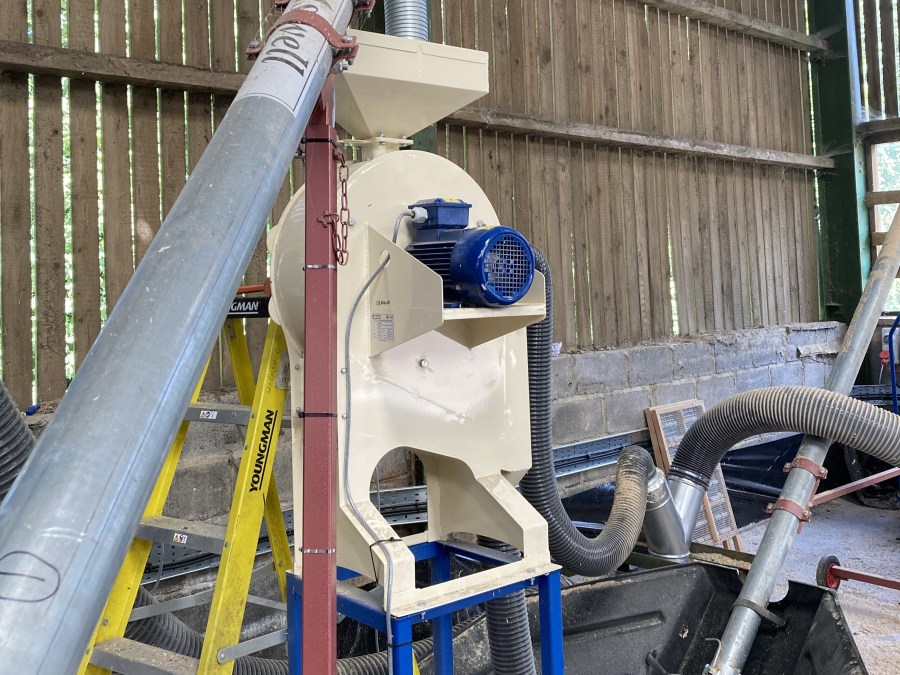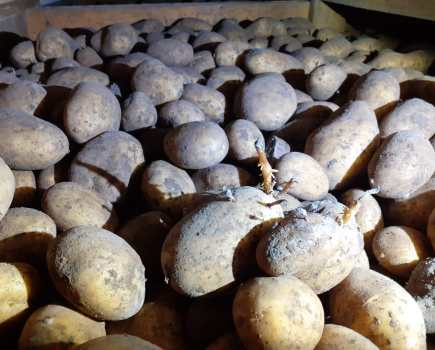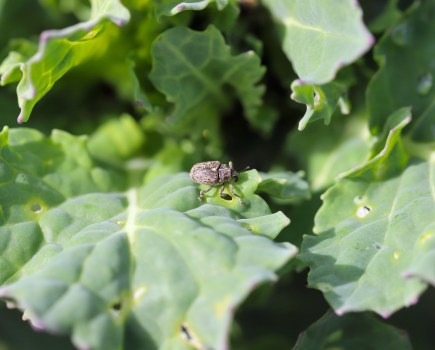An estate in Somerset is aiming to supply its restaurants with ingredients grown, foraged and reared on site including heritage wheat.
The Newt in Somerset, on the Newt Estate, is a boutique hotel which plans to process site-grown wheat to enable home-grown flour to be a valuable ingredient.
“As well as Einkorn and Emmer heritage wheat, we grow feed wheat and barley for our 400 pedigree British White cows, 350 pedigree Dorset Down ewes and herds of red and fallow deer,” says estate farm manager, Cameron Knee.
Cleaners, classifiers and dehullers
To process the heritage wheat, project manager Ed White turned to McArthur BDC and its range of JK Machinery cleaners, classifiers and dehullers. McArthur BDC then worked closely with the estate to design a processing plant.
A JCC05 VibroCompact sieve cleaner was installed to clean the wheat and prevent harmful material entering a JHC03 Compact Dehuller.
“As we’re dehulling wheat, the JHC03 was our preferred machine as it uses impact to dehull rather than grinding. This is important when dehulling pointed-shaped crops, such as wheat and barley,” explains Cameron.
The grain is transported from the sieve cleaner to the dehuller via two Astwell augers, each with a capacity of up to 3tph. Both the sieve cleaner and the dehuller are fitted with aspirators and to ensure cost-efficiency, both operate with the same fan and cyclone.
Once the wheat has been dehulled, it again passes through the sieve cleaner, removing remaining whole grains or husks not removed by the aspirator. The grain is then ready for milling and is discharged from the JCC05 sieve cleaner into 1t bags.
Milling standards
“Our local miller operates a stone mill which means he has exacting standards around the quality of the grain he’s happy to mill. The cleaning and dehulling system has meant that we’ve been able to not only meet his standards, but exceed them, continues Cameron.
And this is just the start of the Newt Estate’s journey to add flour to the list of estate-grown ingredients used in its restaurants’ kitchens. In around 18-months’ time, the existing processing plant will be moved to a specifically designed building.
“Working with McArthur BDC we’ll look at potentially installing JK Machinery equipment with a larger capacity and the features and functionality to further reduce impurities within the grain,” says Cameron.
“For any farming business looking at installing a grain processing plant, I can’t overestimate the importance of getting your preferred supplier to carry out a site visit to make sure that the design works within the available space,” he concludes.




